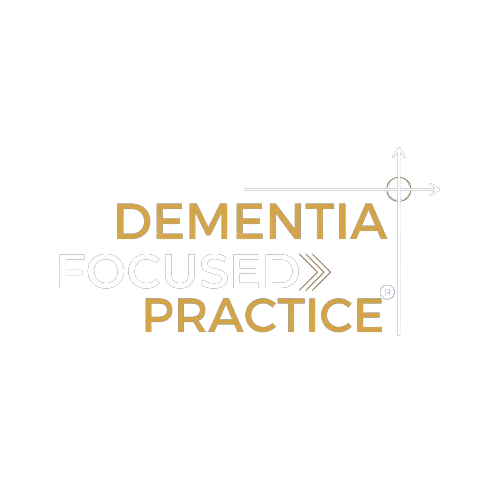Follow Us x
FAQ: What is a Trust and How Do Trusts Work?
A Trust is a legal entity in which one party (the trustmaker) gives another party (the trustee) the right to hold and control property for the benefit of a third party (the beneficiary). In many cases, the trustmaker, trustee and beneficiary may all be the same person. It's also common for there to be more than one trustee, and many beneficiaries.
A Trust may (according to its own instructions):
- own property
- sell property
- transfer property
- receive income
- disburse income
- make investments
- make charitable contribution
Trusts give us the flexibility to leave an inheritance, and also provide guidelines as to how that inheritance can be used by the beneficiaries. You can even use them to incentivize responsible behavior. Trusts can also provide protection for you and your heirs from threats like lawsuits, divorce, disability and debt.
FAQ: Why Do People Create Trusts?
There are many reasons our clients choose to create Trusts, and they all have to do with one very important word: PROTECTION.
Protection for Surviving Spouse and Children and Other Beneficiaries
Trusts can be used to protect you during your lifetime, as well as your heirs from losing your life savings when unforeseen events happen like divorce, lawsuits disability and debt. Like your daughter, but not so much your son-in-law? Worried about what will happen if your daughter inherits your estate, co-mingles the funds with her husband's, and then their marriage fails? It's not something we want to think about, but in this scenario, half of your daughter's inheritance could be lost in the divorce!
Remarriage Protection
"What if my husband remarries after I pass?" If a wife passes early, her kids could be inadvertently disinherited if her husband remarries and is the first to pass in his second marriage! Without careful planning, the new wife in this scenario could end up holding all the assets from the first marriage -- and leave them all to HER children. We can prevent this by building in what we call "bloodline protection" into your estate planning. Most of our clients want bloodline protection to ensure their children are provided for, even in the event that the surviving spouse chooses to remarry.
Protection from Losing Government Benefits
We never know what curve balls life may have thrown at your spouse or other heirs at the time of your passing. What if they are disabled and on public benefits that they need pay for care? Instead of leaving assets to your heirs to them directly, in their own name, we can use Trusts to hold assets for their benefit, so that they don't lose the benefits they are receiving.
Protection for Blended Families
Estate planning for blended families is so important, and goes a long way toward heading off future disputes. Many is the adult child who has asked us, "What happens to my inheritance if Dad remarries?" The man or woman who remarries after a divorce or the untimely death of their first spouse usually has two equally important goals: they want to take care of their new spouse, but they also want to make sure their children from their first marriage are taken care of as well. With the right Trust, we can do both! We can create a Trust for the blended family that ensures the surviving spouse is taken care of, but also ensures that certain assets are reserved for the children or other important beneficiaries. If you have a blended family and either no existing estate planning or estate planning that you suspect doesn't provide the protections I've just described, give our office a call today to gain the peace of mind that comes from sound blended family estate planning.
Legal Protection for A Child With Special Needs
It used to the be the case that the parents of a child with special needs would be advised to leave that child out of their Will. The reason was fear that the child would lose government services and benefits if they received an inheritance. Today, parents can have much greater peace of mind by planning with a Special Needs Trust. If you have a loved one with special needs, a Special Needs Trust can be extremely important planning to put in place. As we saw in the last topic, Trusts can be used to hold assets for the benefit of someone with special needs, as a way to provide for their future, but not disqualify them for the benefits they may be receiving. This tool gives parents the certainty of knowing their child or other loved one with special needs will be taken care of, no matter what happens to other family members along the way.
Asset Protection for Farms and Ranches
Is there a such thing as a "Ranch Trust" or a "Farm Trust?" The answer is yes! In West Texas, we have many families who don't consider themselves rich that have a family farm or ranch. This land may have been passed down for generations. Their land is the largest part of their estate, and the idea of losing it in a lawsuit or to the cost of long-term care is unthinkable. With the right Trust, we can provide legal protection for farms and ranches from threats like lawsuits and also from having to be sold to pay for long-term care.
FAQ: What is long-term care?
Long-term care is a need for care that arises from an illness or injury that is expected to have a lasting impact on a person's ability to perform the basic activities of daily living (ADLs). In terms of industry standards (for long-term care insurance and goverment benefits), a person is said to be in need of long-term care when he or she can no longer perform 2 of the 6 standard activities of daily living. The 6 recognized ADLs are:
FAQ: What are the Costs of Long-Term Care and What are the Ways to Pay for Long-Term Care?
With the blessing of longer life has come the challenge of the need for long-term care. And with the incidence of dementia expected to double by 2040, many families will be finding themselves wondering what to do when their loved one is diagnosed with Alzheimer's or Parkinson's Disease. Due to the increased demand for services, the cost of long-term care in the U.S. is growing at a faster pace than the rate of inflation generally. Across the country, the range of long-term care services has been growing at a rate of about 5% a year -- much faster than the cost of other goods and services. This rate of inflation means that the cost of this care will more than double in the next 20 years. Many people ask about the levels of care and the cost in our area. In trying to decide if assisted living or a nursing home is better for Mom, given her current health and care needs, it is good to know the different levels of care and their cost in Lubbock and West Texas.
Care Options for Seniors:
In-Home Care: The cost of home care provided by an agency in West Texas ranges from $18 - $22 per hour. A private caregiver may charge less, but in that instance you don't have the training, and screening provided by an agency. Home care is what most of us would prefer! But you can see that at this rate, if you needed around the clock care, home is the most expensive place to get it. This is why we recommend that those who are not yet in a health crisis should find out what long-term care insurance options are still available that would allow you to self-fund your care so that you can stay at home if you wish. Texas Medicaid will pay for some home care benefits under some circumstances through it's Star Plus Waiver program. Nathan Ziegler & Associates can evaluate your loved one's situation and see if they can qualify for this benefit. Also, some home care expenses can be used to help qualify a wartime veteran or their surviving spouse for the VA Pension with Aid & Attendance benefit.
Senior Living (Retirement) Communities: The cost of senior living communities in Lubbock and West Texas ranges from $2,800 to $5,500 per month. These communities cater to residents over age 65 and provide many amenities such as prepared meals, educational opportunities, activities, transportation and cleaning services. Accommodations can be individual homes, condos, apartments, or rooms, all within the senior living development. Senior or retirement communities are different from assisted living communities in that they are not licensed to provide help with activities of daily living. Residents may contract separately with a home health agency to provide this care, and in fact, many senior living communities have home health agencies officing onsite within the community. It is important to note that the cost of room and board in a senior living community is not a qualified medical expense for the VA Pension program. Also, Medicaid does not pay for a stay in a senior living community.
Assisted Living Communities: The starting cost of assisting living in Lubbock and West Texas ranges from $3,000 to $5,000 per month, but could go as high as $6,500 per month if the resident needs memory care due to cognitive impairment from Alzheimer's or some other form of dementia. These communities provide prepared meals, activities, and cleaning, medication management and help with activities of daily living. Some select assisted living communities are even equipped to handle the highest level of care that would required a skilled nurse, precluding the need to move the resident as the need for care increases. Families should be aware that assisted living communities typically separate their charges, with room and board being one part, and a "level of care charge" comprising the second part. The level of care charge could be zero if a resident enters the community with no immediate need for care, and usually goes up with time. The level of care charge could be $400 to $1000 per month on top of the room and board charge. Assisted living room, board, and level of care charges are all qualified medical expenses for VA Pension benefits. Families should be aware that most assisted living communities do not accept Medicaid long-term care benefits, and the ones that do usually do not allow new residents to use them. The few Medicaid beds that these communities have are usually reserved for their existing residents who have run out of funds to pay for care.
Nursing Homes: Nursing homes in Lubbock and West Texas cost on average from $4,700 to $6,500 per month. This if for a shared room in a Medicaid certified facility. If your loved one needs a special type of equipment that only a few facilities have, such as a special ventilator, the cost could be double that! Nursing homes provide the care of skilled nurses around the clock. Texas Medicaid benefits will pay for care in a skilled nursing facility if you meet the strict asset, income and need for care guidelines of the program. Nursing home costs are a qualified medical expense for the VA Pension program as well, but the program doesn't pay as much toward the cost of care as Medicaid, making the later a better benefit for nursing home care in most cases.
Ways to Pay for Long-Term Care:
For most people, a new expense of $60,000 or more per year will drain their savings rapidly. If you have a loved one who already needs care, or will in the near future, or who is showing symptoms of Alzheimer's, Parkinson's or some other form of dementia, it's vital that you seek experienced advice from a long-term care planning attorney on how to pay for care. For many of our clients the difference in being proactive to get advice and take steps to qualify for benefits or see if they can still qualify for long-term care insurance, is the difference in preserving their life savings and going broke in a nursing home. Protect your savings! Care for seniors is expensive. Call our office at 806-765-8801 today for your free consultation to find out how to protect your savings from the cost of long-term care.
FAQ: What is probate?
When someone asks, "My father passed away, how do I get the house he left me in my name?" they are asking about probate. Probate is the legal process in which:
If your loved one passed away, let the caring and experienced staff at Nathan Ziegler & Associates can take care of your probate needs, and help settle the estate quickly and efficiently.









